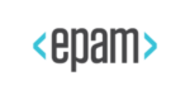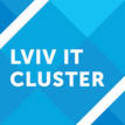
The latest updates for school participants will be available in the menu section "for school participants"
What?
Аrtificial intelligence technology: summer school
When?
27 June - 8 July 2022
Where?
Ivan Franko National University of Lviv
Why?
Аrtificial intelligence technology: summer school in Lviv University
Supporting by:

Aim
- to stimulate the creation of innovative programs on artificial intelligence and update existing ones;
- to promote the involvement of experts in order to form qualifying requirements for educational programs and cooperation with the university in general;
- to involve school participants, teachers, mentors, and industry professionals to work on real projects and research that will occur as a result of schoolwork
For whom
Direct target audience:
- 70% of IT students (approximately 420 registrations expected)
- 30% -other students. The participants will be selected based on the topic justification which the applicant is working on or studying at school (approximately 180 registrations are expected)
- 30% of school speakers will be teachers who will test the topics, which eventually will be included in the new educational program
Indirect target audience:
- Teachers involved in teaching at the school
- Authors of the future educational program
- Ivan Franko National University teachers and other teachers from Institutions of Higher Education of Lviv Region and Ukraine,
- Society and the general public of the city, who will find out about the school and the beginning of a new direction at Lviv University.
Experience:
- 2021, 371 registrations, 165 successfully completed their studies. 14 companies and 23 speakers took part in the work of the school.
Format
Mentors and speakers of the school will be researchers, developers, and skilled professionals with proven experience on practical/real projects in specific area
 |
 |
 |
 |
Working languages of the school: English and Ukrainian. Language of working materials: English
Opening ceremony of the school
Vitaliy Kukharskyy - Vice-Rector for Research, Teaching and IT-Development

Denys Grynov - Head of EPAM University Program in Ukraine.

Taras Kytsmey - chairman of supervisory board IFNUL, Member of the Board DIRECTORS at Softserve
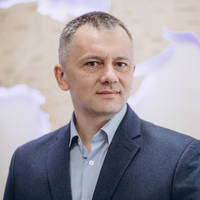
Igor Kostiv, Associate Vice President, Engineering, Global Logic
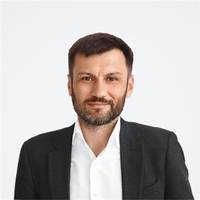
Volodymyr Skladanivskyy - chairman of supervisory board ELEKS
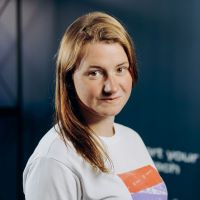
Julia Tsymbala - Education Lead at Lviv IT Cluster
Speakers

Oksana Pomorova, Senior ML/DL Developer, GlobalLogic
PhD, computer scientist, over 20 years of experience in the field of artificial intelligence. Scientific interests are focused on the development of intelligent software for Computer Vision, Natural Language Processing, Recommender Systems and Ontologies.
We will consider Multi-task learning. This is a machine learning approach in which we try to learn multiple tasks simultaneously, optimizing multiple loss functions at once. Rather than training independent models for each task, we allow a single model to learn to complete all of the tasks at once. In this process, the model uses all of the available data across the different tasks to learn generalized representations of the data that are useful in multiple contexts.
Multi-task learning has seen widespread usage across multiple domains such as natural language processing, computer vision, and recommendation systems. It is also commonly leveraged in industry, such as at Google, due to its ability to effectively leverage large amounts of data in order to solve related tasks.

Oleh Misko, Data Scientist at SoftServe
1. Machine learning - what is it?
2. Related areas
3. Supervised learning
1. What is supervised learning?
2. The main problems of supervised learning
3. Classification
4. Regression
4. Unsupervised learning
1. What is unsupervised learning?
2. The main problems of unsupervised learning
3. Clustering
4. Data encoding
5. Transformation of data from domain to another
5. Conclusions, practice
6. Useful sources
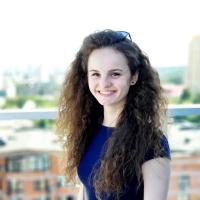
Галина Дичко, Data Scientist, N-iX
Використання Python для аналізу, візуалізації та опрацювання даних (Workshop)
"Have you built up a shareable web app with dashboards in pure Python without front‑end experience in minutes? This workshop will share with you the basic concepts of how to create a streamlit-based app to visualize the key components of a model monitoring process. We will briefly cover what a model monitoring process is and one of its basic approaches. The focus will be on getting hands-on experience in data visualization via streamlit, plotly, seaborn and matplotlib Python packages. By the end of the class, you will be able to create a basic web app to monitor your data’s health and model performance.
Prerequisites:
1. Download train, test data from the ‘Titanic - Machine Learning from Disaster’ kaggle competition:
https://www.kaggle.com/competitions/titanic/data
2. Install Python 3.9.0
3. Install requirements.txt
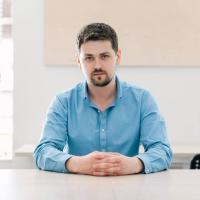
Yevgeni Sydiakin, Software Engineer, N-iX
Методи машинного навчання з підкріпленням
1. Reinforcement Learning application
2. Markov model
3. Deseret grid world
4. Open AI gym
5. Continues Space
6. Deep Reinforcement learning
7. Next steps

Олег Шишкін, Data Engineer, N-iX
ETL, Data Workflows etc
Automation and computers have solved many problems for humanity, but in the best programming tradition, they brought another - an enormous amount of data.
Computers were created to work with data. Initially, it was enough to work with memory directly, but then databases appeared. Today, a database is one of the critical components in any IT product: a small online store, cloud platform, and social networks.
How did the first databases come about? What are the differences between them? What to look for when choosing a database for your task? Can I use non-relational or distributed databases for DW? We will talk about all of this here.
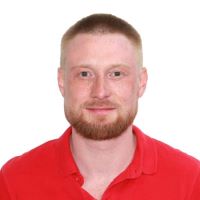
Станіслав Мартінкус, Eleks
Big Data та HPC у платформі AWS. Big Data Visualisation
Agenda:
- Aws data engineering
- Data ingestion
- Data storage
- Data processing
- Data access
- Data visualisation

Євген Берко, Eleks
Big Data та HPC у платформі Azure. Big Data Visualisation
Agenda:
- Cloud storages
- RDBMS
- NoSQL (both managed and native cloud services)
- Choosing between Databricks, Synapse, Snowflake, and HDInsight)
- Stream Processing
- ETL / ELT / Orchestration
- Other data related services

Андрій Мельник, Eleks
Реляційні, нереляційні, розподілені бази даних, data warehouse, ETL, Data Workflows
Agenda:
- Relational databases
- Data warehouse, ETL, Data Workflows
- Non-relational databases
- Distributed databases
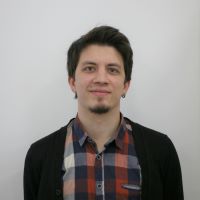
Тарас Дацюк, Eleks
Веб-розробка з використанням Flask/Django. (Workshop)
Agenda:
- Django/Flask, what is it and what should I use it for
- Key differences in frameworks
- Django out of the box
- Supplementary libraries for Django
- Flask out of the box
- Supplementary libraries for Flask
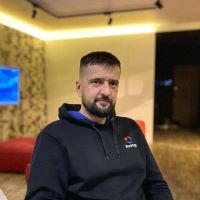
Lyubomyr Senyuk, Head of R&D, Avenga
Віртуальна реальність, роль та застосування систем штучного інтелекту
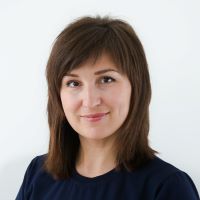
Nadiia Ivashova, Regional Manager AMC Bridge
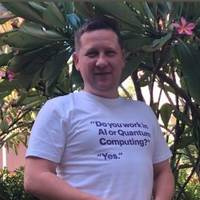
Vasyl Lyashkevych, ML Solutions Architect @GlobalLogic
PhD in Computer Science with over 10+ years experience in R&D and AI with ML in industry. Author and co-author over 70 scientific publications and one patent. Can build efficient innovative solutions with poorly formalized initial requirements, invent new conceptions or algorithms resolving the Computer Vision and NLP problems by AI with ML in different subject domains.
The lecture represents Blockchain technology from basics in theory to existed real applications in different industries. Blockchain applicability with ML is the main focus of the lecture including requirements on the blockchain market.
Blockchain Technology and Machine Learning could be combined to detect suspicious patterns in stream of events what is a crucially important for banking domain.
Thus, in the class, we will build the fraudulent detection system for banking operations.
Knowledge Distillation in Deep Learning
The lecture represents the latest achievements in Machine Learning filed known as Knowledge Distillation. In machine learning, knowledge distillation refers to the process of transferring knowledge from a large model to a smaller one. Even if a model only employs a small percentage of its knowledge capacity and its evaluation can be computationally expensive and it is still valid to resolve a particular problem.
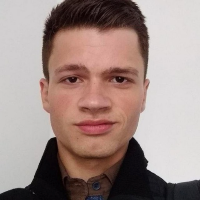
Yuriy Stetsyk Android / Flutter software engineer, Kindgeek
Гібридна мобільна розробка React Native/Flutter/Qt тощо
We will get familiar with mobile cross platform development using Flutter.
How to:
Setup project
Write your first widget
Animate widgets
Manage application state
Interop with native platforms

Danylo Kolinko, Data Science Engineer, Avenga
Natural Language Processing: Machine TranslationIntroduction to natural language processing.
Methods for machine translation; from rule-based to statistical to neural-based. Sequence-to-sequence and attention-based approaches.

Oleh Koval, Project manager at SoftServe.
Difference between SoftSkills and Hard Skills
The importance of SoftSkills in career growth
General communication skills
Active listening, non-verbal communication, feedback, public speaking
Education team
Emotion management and stress management
Useful books

Jonas Szalanczi CEO
Containerizing your MachineLearning/DeepLearning-Model with a REST-ful API in production

Martin Braun CTO
Containerizing your MachineLearning/DeepLearning-Model with a REST-ful API in production
In this session we will be building a containerized REST API for a tensorflow based AI. We will go through the Python code for the API step by step and then take this from a development version to a production grade deployment. Additionally NeuroForge will give students access to a real Cloud VM so they can follow along with the instructor." — Martin Braun, lecturer of workshop
If you want to take a practical part in workshop, fill the form below till 29th June 10:40
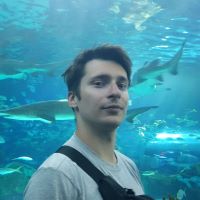
Dmytro Likhomanov, Head of Research, SQUAD
During the lecture, we would discuss how computer vision algorithms turn images into useful features. We would discuss how it was done at the dawn of computer vision and the immense difference deep learning has made in the field. We would take apart a few computer vision tasks: classification, object detection, and metric learning, and would talk a bit about generative models. The goal of this lecture is to grasp fundamental ideas behind modern computer vision and make the first step in it. And for those already familiar with the field, I would add materials to improve in it.

Olena Zola, AR in Mobile Development for iOS, Softserve
- What is AR and how it works
- Tools for working with AR in IOS
- Creating a simple AR program

Liliya Tyrkus, Recruiter, EPAM
CV Secrets
CV definition
Basic resume requirements
Must have blocks
Nice-to-have blocks
Harmful tips
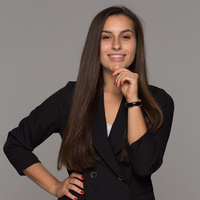
Alona Katsemba, Senior Marketing Specialist & Public Speaking Trainer, EPAM
Self-presentation: how to be confident anytime
- Why do we need to have self-presentation?
- Types of self-presentation.
- Practice (you need to have a notebook and pen or laptop)
- Go out in a good mood with insights and self-presentation.
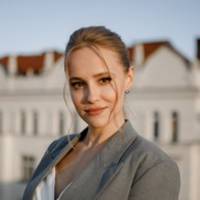
Oksana Khomuliak, Business Analyst, EPAM
BA perspective: What should be discovered before processes automation?
Business processes Discovery, business requirements, Robotics process automation and etc.
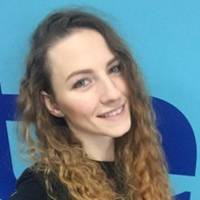
Lesya Dyvanchuk, Business Analyst, EPAM
BA perspective: What should be discovered before processes automation?
Business processes Discovery, business requirements, Robotics process automation and etc.

Roman Moravskyi, Software Engenieer, EPAM
Застосування Azure платформи для реалізації ML/DL проектів. (Workshop)

Lyubomyr Hlozhyk, Senior Software Engineer, EPAM
Why Should I Become an iOS Developer

Alina Vasylenko, Project Administrator, EPAM
Практичне вирішення задач CV та розпізнавання образів (Workshop)
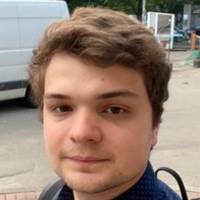
Rostyslav Krit, Lead Software Engineer, EPAM
Big Data та HPC у платформі GCP. Big Data Visualisation
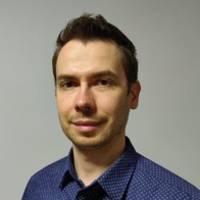
Viktor Gyrenko, Lead Software Engineer, EPAM
Big Data та HPC у платформі GCP. Big Data Visualisation
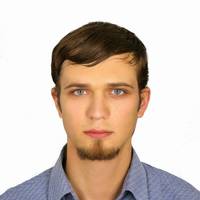
Vitalii Parubochyi, Senior Software Engineer, Vakoms
1. GPGPU and CUDA Technology
Big Data analysis requires high-performance computational capabilities
that can be accomplished on the processors designed for parallel
computation. Let's find processors that can satisfy this need.
This lecture provides an overview of the origins of the GPGPU technology
and ways of its implementation.
The second part of the lecture looks into the CUDA technology created by
the NVIDIA company. We will step the way from the beginning of the CUDA
technology to its current state and goals and see if the CUDA technology
can be the best solution for high-performance computing systems.
2. Fundamentals of programming on CUDA
This lecture covers the basic principles of the programming on CUDA C
and describes the structure of the program written for the CUDA GPU in
more detail. We will discuss how to interact with GPU, copy your data to
GPU and parallel your tasks with CUDA GPU. Additionally, we will
overview different libraries available for the CUDA C that can be useful
for writing own program more effectively.

Alexander Kulepin - Deputy Chairman for Digital Development, Digital Transformations and Digitization (cdto)
With participation of
How to join?
1) To provide the school with a speaker or mentor;
2) to support the project implementation by becoming its partner.
Advantages of partnership:
- additional promotion of your company among students;
- communication and involvement of the students into the company's activities;
- distribution of information content and posts about the company in the social networks of the University;
If you want to take part in schoolwork or cooperate with us, send us an email: marketing@lnu.edu.ua


